Heather Irmiger breaks-out; again - Part II
What makes a successful mountain biker? Is it an all-star training partner, support of a world-class...
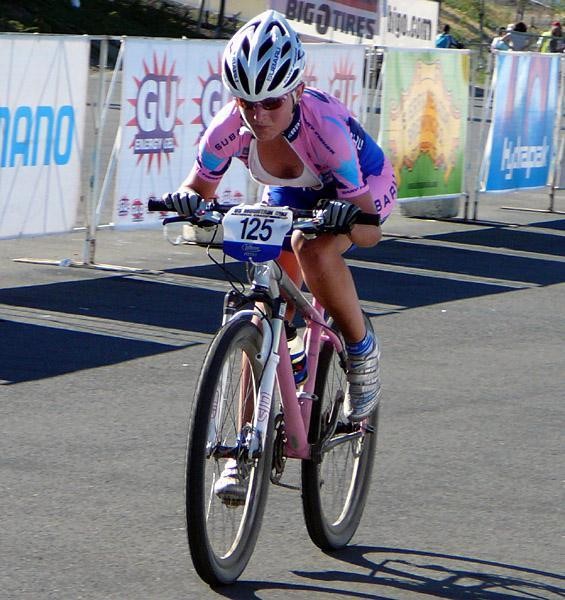
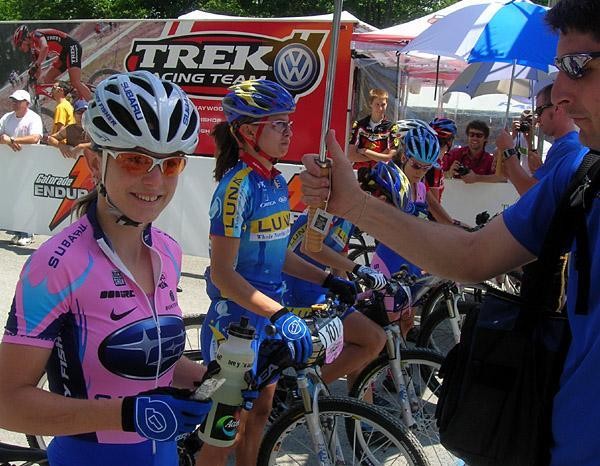
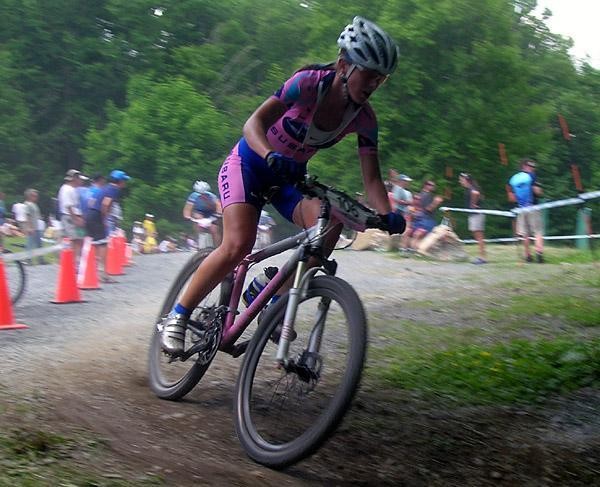
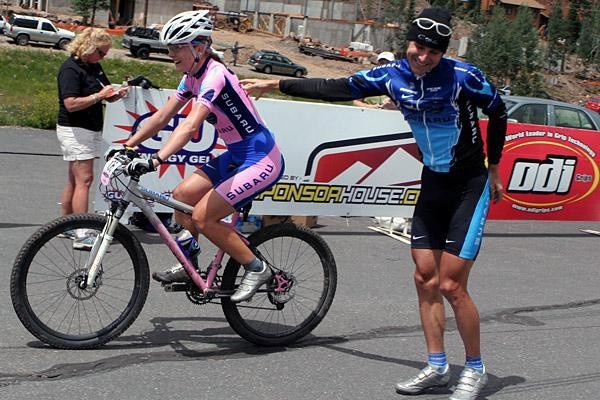
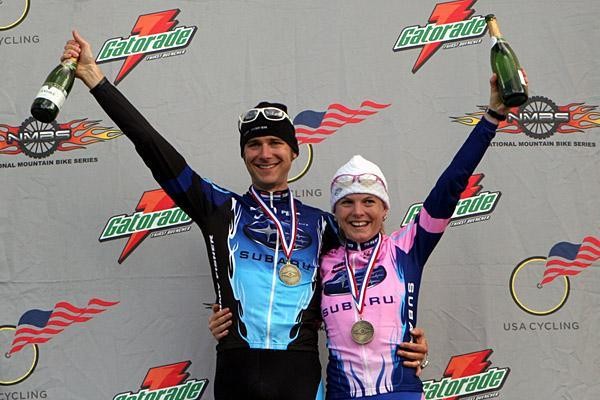
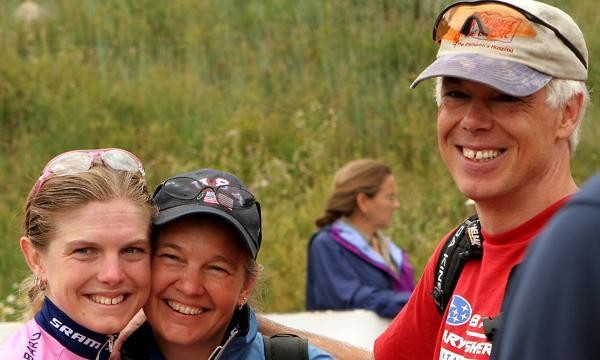

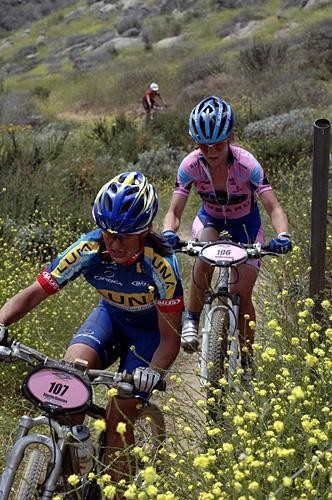



An interview with Heather Irmiger, September 16, 2006
What makes a successful mountain biker? Is it an all-star training partner, support of a world-class team, the inspiration of a mother's love for the sport? Cyclingnews MTB Editor Steve Medcroft has chatted with Subaru/Gary Fisher rider Heather Irmiger several times through the 2006 season and thinks it may be all of the above. (See also Part 1)
The first big win
Irmiger says she didn't quite have 'it' in Idaho and finished third. Next on the schedule was another high-altitude event; the first-ever NORBA to be held in Brian Head, Utah. An altitude course, the cross-country race was mapped on a single, twenty-eight mile loop - in contrast to the multiple lap formats of every other NORBA venue.
"A lot of people have anxiety about altitude because it feels so different to race at altitude," Irmiger says about her mindset entering the race. "Not me. You really have to embrace the way that feels - the dizzy, high heart rate, lacking in air feeling. I don't know if it's some childhood thing I did where my parents took me on an evil high-altitude hike or something but I just love the feeling of being totally oxygen deprived. I was excited about Brian Head because I felt that I had more mental ease with it. And when everyone is so physically strong - the top women are really closely matched - it comes down to who can enjoy that kind of hurt on that day the most."
In the race, Irmiger found herself feeling strong at the right moment. "The race started off with a fifteen or twenty minute-long paved climb that went pretty high right away. People were taking pulls and I started noticing that everyone around me seemed like they were breathing hard but I still felt good, like I wasn't really working, so about half hour into the race, I didn't even attack or anything - I just started going faster and people started coming off my wheel."
Leading the race, Irmiger suddenly found the most dangerous woman in domestic racing back on her wheel. "We hit the downhill and Shonny (Vanlandingham, Luna Chix) caught back on." Irmiger attacked and was able to build a gap of about forty-five seconds. Although she says she "got a little panicky" with Vandlandingham so close, Irmiger held herself together mentally and rolled in for her first-ever NORBA cross-country win. Her husband-to-be (the couple were not married until after the 2005 season) won his event as well making it a couples sweep; a feat they would repeat in 2006.
Get The Leadout Newsletter
The latest race content, interviews, features, reviews and expert buying guides, direct to your inbox!
Not able to find a Sushi restaurant in sleepy Brian Head, the couple celebrated at the best place they could find; the Edge Steak house. "They had picnic tables and chairs," Irmiger said. "Someone bought me a shot of Tequila which hit me amazingly fast and actually felt really good."
Getting the monkey of her back
The other relationships that have paved the way for Irmiger to develop are purely professional.
Irmiger recently made a big step in her athletic career; letting go of her day job. She came to the realization that she had plateued in her ability to properly train during the 2005 season. "(Working full time and competing) always felt manageable but (through the middle of the season), I started to have problems, especially with recovery. I had the time to train because I worked only 32 hours a week and planned my days tightly, but as my level increased, I found that recovery was harder to get. Having to be up at 6:15 for work meant that I never got enough sleep, for example."
But as a somewhat novice professional female racer, pure economics meant she had to keep working. At the time, she was sponsored by Tokyo Joe's and was receiving help from the Subaru/Gary Fisher team in the form of airport pickups and the ability to share a hotel room with JHK. "It's not the easiest thing in the world to keep doing but you just have to work hard and not make excuses," she said about her lifestyle as both a career woman and professional racer. "Working hard and not making excuses for me meant that if it would snow and I needed to train, I would set up the trainer and do it. I learned to understand that you have to work hard at whatever you want to do - at your job or if you're a bike racer - if you want to be good at something, you have to work hard at it. It means you have to go to bed at nine even if you want to go out to dinner with friends."
The dedication made an impact in Irmiger's results and in the eyes of the Subaru/Gary Fisher team who picked Irmiger up as a for the 2006 season. "In 2005, we provided some logistical and tech support to Heather as a member of the Gary Fisher sponsored Tokyo-Joes team," says Fisher team manager Jon Rourke. "She earned her spot with strong results and closed the deal by winning Brian Head. Plus she is very energetic and charismatic person."
Rourke says the unusual situation of having a married couple competing together as members of the team has worked well. "The logistics and travel are easier," he says, "you just cut-n-paste the details. The reward (of being on the same team) is actually more for them, by being able to spend time together while traveling as compared to the stresses and loneliness one might have leaving a loved one at home."
With an offer from the Subaru/Gary Fisher team in hand, the day job was then history. "My official last day was December 31st of '05," Irmiger said. "I wanted to start the bike racing season clean, be able to do the full training schedule. I wanted to be able to go where the sunshine was if I felt like it. I wanted to be able to take naps if I felt like it. To not ride with my night light after work. To take advantage of all those great things I'd heard about being a bike racer. "
Performing to potential
Has life as a full-time pro been everything she hoped? "It sounds kind of cliché to say I can rest now but it really is amazing how much being able to completely focus on just your training and your recovery can impact you."
Irmiger says that difference shows itself most on her training sessions. "I haven't so much increased my training hours but I have noticed that I've increased the number of days in a row where I can ride hard. I keep a training log and I used to make notes that I did my four-hour ride today but I felt bad for two hours of it and now it's like 'I did my four-hour ride today and I felt like a rock start the whole time.' And I'm going to have a real off season; instead of waking up at six in the morning to go to the gym, I can hit the gym whenever I want to. And I'm consistently placing where I want this year. I think with this kind of a support and not needing to work, I can only get better every year. I cant wait to see what the second year of doing this looks like."
Being able to focus completely on the sport also showed itself in the logistical side of Irmiger's athletic life. "Its been amazing to not have to stress about getting back to work on Monday after race wekeends," she explains. "Last year, I would have to book the last flight out on a Sunday night or maybe I'd get to work at one in the afternoon on Monday after coming straight from the airport. Just being able to go to the race and come home and focus on training and taking care of myself is huge."
It's also safe to say that the transition to being a full-time pro had an impact on Irmiger's performance in bike races. Irmiger had her most prolific domestic season yet, winning the Brian Head, Utah NORBA for the second year in a row (matching husband JHK's bak-to-back wins) and taking a $2,500 first prize at Colorado's Teva Mountain Games along with six other podium finishes in NORBA competitions.
Irmiger also traveled the full World Cup circuit for the first time in her career, paying her dues at the back of international fields in places like Curacao and Schladming, Austria.
And, she says, all of it has been good for her. "I feel like I'm right where I want to be in my career. Jeremy has said this a hundred times so I feel like I'm going to be repeating him but it's so true the biggest goal for me every year is to keep getting better. Whether it's mentally or physically; improving so it shows in the results is a really the big deal for me."
With her non breakout, breakout season behind her, Irmiger says she'll take some time away from the bike but is excited for next year. "My goal in 2007 is to handle the races at the World Cup mentally a little better. Mentally, it's like starting all over."
Click here for Part 1 of our profile of Heather Irmiger, where we learn about her growth as an athlete and marriage to America's premiere cross-country racer.